| Listing 1 - 10 of 13 | << page >> |
Sort by
|
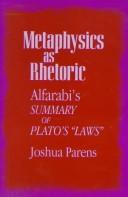
ISBN: 1438415494 9781438415499 0791425738 9780791425732 0791425746 9780791425749 Year: 1995 Publisher: Albany
Abstract | Keywords | Export | Availability | Bookmark
 Loading...
Loading...Choose an application
- Reference Manager
- EndNote
- RefWorks (Direct export to RefWorks)
Plato. --- Fārābī. --- Plato --- Fārābī.
Book
ISSN: 01698729 ISBN: 9789004206151 9004206159 9786613530509 9004217320 1280126647 9789004217324 9781280126642 Year: 2012 Volume: 85 Publisher: Leiden
Abstract | Keywords | Export | Availability | Bookmark
 Loading...
Loading...Choose an application
- Reference Manager
- EndNote
- RefWorks (Direct export to RefWorks)
This study—the first monograph devoted exclusively to al-Fārābī’s cosmology—provides a new interpretation of this thinker’s philosophical development through an analysis of the Greek and Arabic sources and a contextualization of his life and thought in the cultural and intellectual milieu of his time. It discusses key cosmological and metaphysical concepts articulated in his works, with a special focus on celestial causation, intellection, and motion. This book also examines al-Fārābī’s cosmological method and particularly the connection between astronomy, physics, and metaphysics. The result is a reassessment of al-Fārābī’s cosmology vis-à-vis late-antique Greek philosophical trends and a clearer understanding of how it creatively adapted and transformed this legacy to establish a new cosmological paradigm in Arabic thought.
Islamic cosmology --- Cosmology, Islamic --- Muslim cosmology --- Cosmology --- al-Fārābī, Abū-Nasr Muhammad. --- Abū Nasr Muhammed ibn Muhammed ibn Tarhān ibn Uzlag al-Farabi --- Alfarabius --- Alpharabius --- Fārābī --- Muhammed Ibn Muhammed (Abu Nasir) al-Farabi --- Islamic cosmology. --- Fārābī.
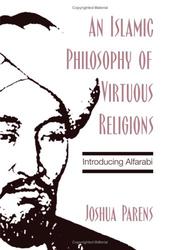
ISBN: 079148212X 1429411775 9781429411776 0791466892 9780791466896 9780791482124 Year: 2006 Publisher: Albany State University of New York Press
Abstract | Keywords | Export | Availability | Bookmark
 Loading...
Loading...Choose an application
- Reference Manager
- EndNote
- RefWorks (Direct export to RefWorks)
Joshua Parens provides an introduction to the thought of Alfarabi, a tenth-century Muslim political philosopher whose writings are particularly relevant today. Parens focuses on Alfarabi's Attainment of Happiness, in which he envisions the kind of government and religion needed to fulfill Islam's ambition of universal acceptance. Parens argues that Alfarabi seeks to temper the hopes of Muslims and other believers that one homogeneous religion might befit the entire world and counsels acceptance of the possibility of a multiplicity of virtuous religions. Much of Alfarabi's approach is built upon Plato's Republic, which Parens also examines in order to provide the necessary background for a proper understanding of Alfarabi's thought.
Islamic philosophy. --- Arabic philosophy --- Muslim philosophy --- Philosophy, Islamic --- Philosophy, Arab --- Fārābī. --- Abū Nasr Muhammed ibn Muhammed ibn Tarhān ibn Uzlag al-Farabi --- Alfarabius --- Alpharabius --- Fārābī --- Muhammed Ibn Muhammed (Abu Nasir) al-Farabi --- Islamic philosophy --- al-Fārābī, Abū-Nasr Muhammad. --- Farabi.
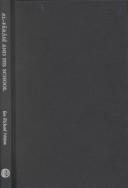
ISBN: 1134959818 1280216905 9786610216901 0203980204 9780203980200 0415035945 0415035953 9780415035941 9780700710645 9781134959815 9781280216909 6610216908 9781134959761 9781134959808 113495980X Year: 1992 Publisher: London New York Routledge
Abstract | Keywords | Export | Availability | Bookmark
 Loading...
Loading...Choose an application
- Reference Manager
- EndNote
- RefWorks (Direct export to RefWorks)
Examines one of the most exciting and dynamic periods in the development of medieval Islam, from the late 9th to the early 11th century, through the thought of five of its principal thinkers, prime among them al-Farabi. This great Islamic philosopher, called 'the Second Master' after Aristotle, produced a recognizable school of thought in which others pursued and developed some of his own intellectual preoccupations. Their thought is treated with particular reference to the most basic questions which can be asked in the theory of knowledge or epistemology. The book thus fills a lacuna in the l
Knowledge, Theory of (Islam) --- Islamic epistemology --- Islamic philosophy --- Fārāb --- Contributions in theory of knowledge. --- Farabi
Book
ISBN: 0809334143 9780809334148 9780809334131 0809334135 Year: 2015 Publisher: Carbondale
Abstract | Keywords | Export | Availability | Bookmark
 Loading...
Loading...Choose an application
- Reference Manager
- EndNote
- RefWorks (Direct export to RefWorks)
Rhetoric --- Aristotle. --- Fārābī. --- Avicenna, --- Averroës, --- Aristoteles. --- LANGUAGE ARTS & DISCIPLINES --- REFERENCE --- Rhetoric. --- Composition & Creative Writing. --- Writing Skills. --- Averroës, --- Fārābī. --- Rhetoric (Aristotle).
Book
ISBN: 9782351595008 Year: 1994 Publisher: Presses de l’Ifpo
Abstract | Keywords | Export | Availability | Bookmark
 Loading...
Loading...Choose an application
- Reference Manager
- EndNote
- RefWorks (Direct export to RefWorks)
C'est un long cheminement qui a conduit la langue arabe de ses débuts à une expression philosophique. À partir du premier monument littéraire qui nous soit parvenu, le Coran, l'évolution a progressivement ajouté, à une langue et à une production très marquées par l'oralité, les caractères propres à l'écriture. À travers l'étude de la langue du Coran et du ḥadīṯ, à travers les disciplines religieuses comme le kalāmou le fiqh, à travers certaines formes littéraires, se sont longtemps manifestés les caractères de l'oralité. Tandis qu'avec les sciences et plus particulièrement la philosophie, les traits caractéristiques de l'écrit vont se trouver affirmés. C'est ce que cherchera à établir la seconde partie de ce travail en analysant ce que nous apporte l'œuvre de Farabi (870-950) dans sa réflexion sur le langage. Héritier des générations qui l'ont précédé, Farabi l'est aussi des grands penseurs de l'Antiquité grecque, et plus particulièrement de Platon et Aristote. Mais il réalisera une synthèse originale et posera une problématique qui lui est propre pour aborder, dans son Kitāb al-ḥurūf(Le livre des lettres), les questions de la naissance du langage et des sciences. Il en ressort un recours et un rapport au langage qui sont tout à fait différents de ceux de ses contemporains. Avec Farabi, la langue philosophique arabe est née, et cette langue a quitté le terrain de l'oralité pour celui de l'écrit. It was a long process which led the Arabic language from its beginnings to a philosophical expression. From the first literary masterpiece that was passed down to us, the Koran, evolution has progressively added, to a language and a literary output which were largely influenced by orality, characters peculiar to written tradition. It was in the study of Koranic and ḥadīthlanguages, in the religious disciplines such as kalāmand fiqhand in certain forms of literature that oral characteristics appeared for a long time pre-eminent. Whereas with sciences and more particularly…
Islamic philosophy --- Philosophy & Religion --- Philosophy --- Arabic philosophy --- Muslim philosophy --- Philosophy, Islamic --- Philosophy, Arab --- Fārābī --- Language. --- Qurʼan --- Language, style. --- Abū Nasr Muhammed ibn Muhammed ibn Tarhān ibn Uzlag al-Farabi --- Alfarabius --- Alpharabius --- Fārābī --- Muhammed Ibn Muhammed (Abu Nasir) al-Farabi --- Al-Coran --- Al-Qur'an --- Alcorà --- Alcoran --- Alcorano --- Alcoranus --- Alcorão --- Alkoran --- Coran --- Curān --- Gulan jing --- Karan --- Koran --- Koranen --- Korani --- Koranio --- Korano --- Ku-lan ching --- Ḳurʼān --- Kurāna --- Kurani --- Kuru'an --- Qorān --- Quräan --- Qurʼān al-karīm --- Qurʺon --- Xuraan --- Κοράνιο --- Каран --- Коран --- קוראן --- قرآن --- philosophie --- Langue arabe --- Islam --- linguistique
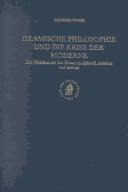
ISBN: 9004120297 9004453180 Year: 2001 Volume: 43 Publisher: Leiden; Boston : BRILL,
Abstract | Keywords | Export | Availability | Bookmark
 Loading...
Loading...Choose an application
- Reference Manager
- EndNote
- RefWorks (Direct export to RefWorks)
This book fills the gap in the research of Leo Strauss (1899 - 1973) showing the influence of Alfarabi (870 - 950), Avicenna (980 - 1037) and Averroes (1126 - 1198) on his thought. The first part is historically-philologically oriented and contains neglected material where it presents a new approach to Leo Strauss's work. The second part discusses Strauss's reaction towards the crisis of modernity, stimulated by Islamic philosophy, as well as his nomic understanding of religion as the essential features of his political philosophy. Since Alfarabi is the Muslim Philosopher who had the greatest influence on Strauss's thought, his philosophy will also be analysed. This book offers the opportunity to discover an interesting aspect of the encounter of cultures, and contribute to a modern reception of Islamic philosophy.
Philosophy, Islamic --- Arabic philosophy --- Muslim philosophy --- Philosophy, Arab --- Averroes --- Avicenna --- Farabi --- Alpharabius --- Alfarabius --- Abennasar --- Muḥammad ibn Muḥammad al-Fārābī --- Uzluk oğlu Farâbî --- Fārābī, Muḥammad ibn Muḥammad --- Abu Nasr Mukhammad alʹ-Farabi --- Farabi, Abu Nasr Mukhammad --- Abu-Nasr alʹ-Farabi --- Abū Naṣr Fārābī --- Alfarabi --- Alfārābī, Abu Nasr --- Abu Nasr Alfārābī --- Avennasar --- Abu Nasr Forobiĭ --- Форобий, Абу Наср --- Forobiĭ, Abu Nasr --- alʹ-Farabi --- Al-Faraby --- Abu Nasr Muhammet ibn Muhammet ibn Tarhan ibn Uzlug Faraby --- Faraby, Abu Nasr Muhammet ibn Muhammet ibn Tarhan ibn Uzlug --- Abū Naṣr Muḥammad bin Muḥammad bin Ṭarhkhān bin Ūzluġ al-Fārābī --- Fārābī, Abū Naṣr Muḥammad bin Muḥammad bin Ṭarhkhān bin Ūzluġ al --- -Phwarabi, Abu Nassr --- Pharabi --- פאראבי --- أبو نصر الفارابي --- الفارابي --- فارابي --- فرابي --- Al-Hosain ben Abdallah ben Sînâ, Abou Alî --- Avicenna Latinus --- Avicenne --- Avicene --- Ibn Sīnā, al-Husayn ibn 'Abd Allāh --- Al-Hoessein Ibn Abdoellah Ibn Sînâ, Abou Alî --- Ibn Rochd --- Ibn Rušd al-Hafīd --- Ibn Rušd, Abū 'l-Walīd --- Muhammed Ibn Ahmad --- Abū Nasr Muhammed ibn Muhammed ibn Tarhān ibn Uzlag al-Farabi --- Fārābī --- Muhammed Ibn Muhammed (Abu Nasir) al-Farabi --- Islamic philosophy --- Averroës, --- Avicenna, --- Fārābī. --- Abū al-Walīd ibn Rushd, --- Abū al-Walīd Muḥammad ibn Aḥmad ibn Rushd, --- Abū el-Walīd ibn Roshd, --- Abuʼl-Walid Muhammad bin Rusjd, --- Alṿalid ibn Rushd, --- Averroè, --- Averróis, --- Bin Rusjd, Muhammad bin Ahmad, --- Ibn-e-Rushd, --- Ibn-i Rushd, --- Ibn Rashad, --- Ibn Rochd, --- Ibn Roshd, Abū el-Walīd, --- Ibn Roshd, --- Ibn Ruschd, --- Ibn Rušd, --- Ibn Rushd, --- Ibn Rushd al-Ḥafīd, --- Ibn Rushd, Abū al-Walīd, --- Ibn Rushd, Abū al-Walīd Muḥammad ibn Aḥmad, --- Ibn Rushd, Abul Walid Muhammad ibn Ahmad, --- Ibnu Rosjid, --- Ibnu Rusjd, --- ابن رشد، --- Muḥammad ibn Aḥmad ibn Rushd, --- al-Fārābī, Abū-Nasr Muhammad. --- Islamic philosophy. --- Modernity. --- Rezeption. --- Civilization, Modern.
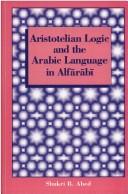
ISBN: 0585078238 0585078238 9780585078236 0791403971 079140398X 0791494098 9780791403976 9780791494097 Year: 1991 Publisher: Albany, N.Y. State University of New York Press
Abstract | Keywords | Export | Availability | Bookmark
 Loading...
Loading...Choose an application
- Reference Manager
- EndNote
- RefWorks (Direct export to RefWorks)
Logic --- Language and logic. --- Linguistics and logic --- Logic in language --- Language and languages --- Semantics --- Argumentation --- Deduction (Logic) --- Deductive logic --- Dialectic (Logic) --- Logic, Deductive --- Intellect --- Philosophy --- Psychology --- Science --- Reasoning --- Thought and thinking --- Terminology --- History. --- Methodology --- Fārābī --- Aristotle --- Aristoteles --- Aristote --- Arisṭāṭṭil --- Aristo, --- Aristotel --- Aristotele --- Aristóteles, --- Aristòtil --- Aristotile --- Arisṭū --- Arisṭūṭālīs --- Arisutoteresu --- Arystoteles --- Ya-li-shih-to-te --- Ya-li-ssu-to-te --- Yalishiduode --- Yalisiduode --- Ἀριστοτέλης --- Αριστοτέλης --- Аристотел --- ארסטו --- אריםטו --- אריסטו --- אריסטוטלס --- אריסטוטלוס --- אריסטוטליס --- أرسطاطاليس --- أرسططاليس --- أرسطو --- أرسطوطالس --- أرسطوطاليس --- ابن رشد --- اريسطو --- Pseudo Aristotele --- Pseudo-Aristotle --- アリストテレス --- Abū Nasr Muhammed ibn Muhammed ibn Tarhān ibn Uzlag al-Farabi --- Alfarabius --- Alpharabius --- Fārābī --- Muhammed Ibn Muhammed (Abu Nasir) al-Farabi --- Language. --- Contributions in logic. --- Logic - Terminology - History.
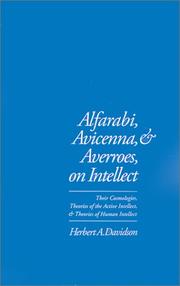
ISBN: 1280526114 019536077X 142940115X 9781429401159 9780195074239 0195074238 9781280526114 0195074238 9786610526116 6610526117 0197729940 Year: 1992 Publisher: New York Oxford University Press
Abstract | Keywords | Export | Availability | Bookmark
 Loading...
Loading...Choose an application
- Reference Manager
- EndNote
- RefWorks (Direct export to RefWorks)
Medieval Islamic, Jewish and Christian philosophers of the 16th century considered the distinction between the potential and the active intellect as a key to deciphering the nature of man and the universe. This study examines the manner in which three specific philosophers dealt with the issue.
Islamic philosophy --- Intellect. --- Philosophy of mind. --- Islamic cosmology. --- Cosmology, Islamic --- Muslim cosmology --- Cosmology --- Mind, Philosophy of --- Mind, Theory of --- Theory of mind --- Philosophy --- Cognitive science --- Metaphysics --- Philosophical anthropology --- Human intelligence --- Intelligence --- Mind --- Ability --- Psychology --- Thought and thinking --- Greek influences. --- Fārābī. --- Avicenna, --- Averroës, --- Abū al-Walīd ibn Rushd, --- Abū al-Walīd Muḥammad ibn Aḥmad ibn Rushd, --- Abū el-Walīd ibn Roshd, --- Abuʼl-Walid Muhammad bin Rusjd, --- Alṿalid ibn Rushd, --- Averroè, --- Averróis, --- Bin Rusjd, Muhammad bin Ahmad, --- Ibn-e-Rushd, --- Ibn-i Rushd, --- Ibn Rashad, --- Ibn Rochd, --- Ibn Roshd, Abū el-Walīd, --- Ibn Roshd, --- Ibn Ruschd, --- Ibn Rušd, --- Ibn Rushd, --- Ibn Rushd al-Ḥafīd, --- Ibn Rushd, Abū al-Walīd, --- Ibn Rushd, Abū al-Walīd Muḥammad ibn Aḥmad, --- Ibn Rushd, Abul Walid Muhammad ibn Ahmad, --- Ibnu Rosjid, --- Ibnu Rusjd, --- ابن رشد، --- Muḥammad ibn Aḥmad ibn Rushd, --- Al-Hosain ben Abdallah ben Sînâ, Abou Alî --- Avicenna Latinus --- Avicenne --- Avicene --- Ibn Sīnā, al-Husayn ibn 'Abd Allāh --- Al-Hoessein Ibn Abdoellah Ibn Sînâ, Abou Alî --- Abū Nasr Muhammed ibn Muhammed ibn Tarhān ibn Uzlag al-Farabi --- Alfarabius --- Alpharabius --- Fārābī --- Muhammed Ibn Muhammed (Abu Nasir) al-Farabi --- Philosophie --- Xe-XIIe s., 901-1200 --- Philosophie arabe --- Philosophie grecque --- Islamic philosophy - Greek influences --- Intellect --- Islamic cosmology --- Avicenna, - 980-1037 --- Averroës, - 1126-1198 --- Averroès, 1126-1198 --- Avicenne, 980-1037 --- Philosophy, Islamic --- Averro�es, --- F�ar�ab�i. --- Farabi. --- Averroes,
Book
ISBN: 2351590481 2821818823 235159343X Year: 2012 Publisher: Presses de l’Ifpo
Abstract | Keywords | Export | Availability | Bookmark
 Loading...
Loading...Choose an application
- Reference Manager
- EndNote
- RefWorks (Direct export to RefWorks)
The texts published in this volume represent a contribution to the debates on the origin of mysticism in the land of Islam, in particular Sufism, and on its evolution during the first centuries of the Hegirian era. The difficulty of the approach is twofold: that of understanding origins which are by nature remote and imprecise, and that of approaching a personal and elusive phenomenon such as mysticism. This question of origins requires a rereading of the oldest texts and a distance from received ideas both in the Muslim tradition and in academic circles. It is a question of knowing how, over the centuries, men and women considered as Masters have appeared and how the relationship between them and those who sought their teaching and their company was established and formalized.The choice of this theme - the relationship between Masters and disciples - makes it possible to address the questions of teaching, training and the transmission of the mystical experience. It is precisely around the exercise and the nature of this relationship that all the Muslim mystical groups, Sufi or not, will be built. But it takes us to the heart of a paradox: is not the mystical experience indeed, by definition, personal, not identically reproducible and, therefore, non-transferable?
Sufi literature --- Sufis --- Sufism --- Religion --- Philosophy & Religion --- Islam --- History and criticism --- Study and teaching --- Arabic literature --- Islamic literature --- Persian literature --- Turkish literature --- Urdu literature --- Sofism --- Mysticism --- Malāmatiyya --- Fārābī --- Abū Nuʿaym --- Šiblī --- futuwwa --- zuhd --- suhba --- Abū al-Raḥmān al-Sulamī --- Ṭirmiḏī --- Abū ʿUṯmān al-Ḥīrī --- mystique musulmane --- Ibrāhīm b. Adham --- Abū Saʿīd b. Abī l-Ḫayr --- Abū Ṭālib al-Makkī --- Karamiyya
| Listing 1 - 10 of 13 | << page >> |
Sort by
|

 Search
Search Feedback
Feedback About UniCat
About UniCat  Help
Help News
News